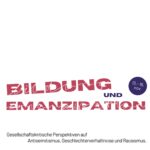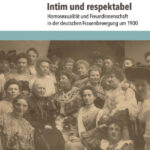Netzwerk Biographieforschung; Li Gerhalter und Britte Semanek (Web)
Zeit: Fr., 22.11.2024, 9.00-13.30 Uhr
Ort: Institut für Bildungswissenschaft der Univ. Wien, Senseng. 3A, 1090 Wien, Seminarraum 7
Der Radius des auto/biographischen Forschens wird durch die systematische Sammlung und Aufbereitung von Quellen definiert. Welche biographischen Themen und wessen Biographien beforscht werden können – und welche nicht, hängt grundlegend von den Materialien ab, die dafür zur Verfügung stehen. Dieser Dreh- und Angelpunkt des empirischen Arbeitens steht beim 25. Workshop des Netzwerks im Mittelpunkt. In einem Impulsvortrag und zwei Round-Table-Gesprächen sollen dazu verschiedene Erfahrungen ausgetauscht und diskutiert werden.
Die Beitragenden sind einerseits Vertreter:innen von Archiven und Sammlungen, die sich auf unterschiedliche auto/biographische Formate spezialisiert haben, seien es Tagebücher, lebensgeschichtliche Aufzeichnungen, Fotografien, Filme, künstlerische Nachlässe, behördliche und berufliche Dokumente etc. Was wurde hier von wem, wann, auf welche Weise und zu welchem Zweck gesammelt? Welche Sammlungsstrategien wurden verfolgt? Was hat gut geklappt, was eher nicht? Haben sich diese Strategien oder auch die thematischen Schwerpunkte in den vergangenen Jahrzehnten verändert? Wie verlaufen die Kontakte mit jenen Personen, die die Materialien übergeben? Was sind deren Erwartungen? Und wer sind die Nutzer:innen dieser Quellen? Welchen Einfluss haben die zunehmenden Forderungen nach digital verfügbaren Beständen? Und sind Konjunkturen jener Themen zu beobachten, die nachgefragt werden? Andererseits berichten Forscher:innen, wie sie im Rahmen von konkreten Projekten ihre Quellenbestände selbst erarbeitet haben. Wo und wie konnten sie die Materialien für sich zugänglich machen? Was waren die Möglichkeiten und Herausforderungen im Laufe der Beschäftigung mit den jeweiligen Quellen? Wenn es sich im private Bestände handelt: Werden die Materialien nach ihrer Auswertung zurückgegeben – oder an eine Sammlung überantwortet? Und gibt es Erfahrungen mit der „Nachnutzung“ von Quellenbeständen?
Programm
- 9.00 Uhr: Begrüßung: Klara Löffler, Brigitte Semanek und Li Gerhalter
9.10 Uhr: Einführung und Impulsvortrag
- Einführung: Brigitte Semanek und Li Gerhalter: Politiken des Sammelns
- Vortrag: Ursula A. Schneider (Forschungsinstitut Brenner-Archiv, Univ. Innsbruck) und Arnhilt Inguglia-Höfle (Literaturarchiv der ÖNB): (Kultur-)Archive und Gender. Werkstattbericht einer KOOP-LITERA-Initiative Continue reading

 The 20th Berkshire Conference on the History of Women, Genders, and Sexualities
The 20th Berkshire Conference on the History of Women, Genders, and Sexualities  The „Hidden lives: domestic servants in the European country house, c.1700-1850“-Network
The „Hidden lives: domestic servants in the European country house, c.1700-1850“-Network  Lehr- und Forschungsbereich „Soziale Ungleichheit und politische Bildung“, Inst. für Erziehungswissenschaft, Univ. Innsbruck
Lehr- und Forschungsbereich „Soziale Ungleichheit und politische Bildung“, Inst. für Erziehungswissenschaft, Univ. Innsbruck  Institut für soziale Bewegungen, Bochum; Institut für Zeitgeschichte, München -Berlin; Leibniz-Zentrum für Zeithistorische Forschung, Potsdam
Institut für soziale Bewegungen, Bochum; Institut für Zeitgeschichte, München -Berlin; Leibniz-Zentrum für Zeithistorische Forschung, Potsdam 18. Workshop des Forschungsschwerpunkts Frauen- und Geschlechtergeschichte der Historisch-Kulturwissenschaftlichen Fakultät der Univ. Wien
18. Workshop des Forschungsschwerpunkts Frauen- und Geschlechtergeschichte der Historisch-Kulturwissenschaftlichen Fakultät der Univ. Wien